15 Ng. 100 Đ. Nguyễn Xiển, Thanh Xuân Nam, Thanh Xuân, Hà Nội 100000
Imagine yourself deep within the vast, awe-inspiring landscapes of the Tibetan Plateau, where endless plains meet distant snow-capped peaks under an impossibly blue sky. After days of driving through ever more remote terrain, a cluster of buildings emerges, a welcome sight in the high-altitude wilderness. This is Saga (Saˉgaˊ), a crucial town in the Shigatse Prefecture of Western Tibet. While not a tourist destination in the traditional sense with ancient monasteries or bustling markets, Saga holds immense strategic importance as a vital stopover and logistical hub on the overland route to the sacred Mount Kailash and Lake Manasarovar. Situated at an impressive elevation of approximately 4,450 meters (14,600 feet), Saga represents a significant stage in acclimatization and preparation for travelers venturing into the even higher and more challenging Kailash region. It's a place where the true adventure begins to unfold, where the vastness of Tibet truly becomes apparent, and where every journey to the Roof of the World pauses before its ultimate spiritual or exploratory quest.
Saga's very existence and importance are defined by its pivotal geographical location within the rugged expanse of the Tibetan Plateau.
Saga is strategically located near the confluence of the Yarlung Tsangpo River (the upper reaches of the mighty Brahmaputra River) and its tributary, the Myang Chu. This position places it within a vast, high-altitude basin, where the landscape transitions from the more developed areas around Shigatse to the truly remote and wild expanses of Western Tibet. The town serves as a natural crossroads, facilitating movement across this challenging terrain.
Saga lies directly on the G219 National Highway (also known as the Xinjiang-Tibet Highway or the Yecheng-Lhasa Highway), a monumental road that stretches thousands of kilometers across some of the world's most desolate and high-altitude regions.
Connecting Major Regions: The G219 is the sole major artery connecting Lhasa and Shigatse with the remote Ngari Prefecture (where Kailash is located) and further north into Xinjiang.
Essential Stopover: For any overland journey to Mount Kailash and Lake Manasarovar, Saga is an indispensable overnight stop. It provides the last relatively developed facilities (basic guesthouses, simple restaurants, fuel, vehicle repair) for hundreds of kilometers before reaching Darchen, the base for the Kailash Kora.
Like many towns in strategic locations, Saga has a history rooted in ancient trade and defense. It was likely a stopping point on old caravan routes connecting central Tibet with Nepal and parts of India, facilitating trade in goods like salt, wool, and tea. Its location also made it a minor military outpost, controlling access points in this vast frontier region. Though modern Saga is modest, it stands on centuries of such history.
Perched at 4,450 meters (14,600 feet), Saga represents another significant step up in altitude for travelers coming from Lhasa (3,650m) or Shigatse (3,800m). This makes it a crucial point for altitude acclimatization.
Gradual Ascent: A well-designed itinerary for Western Tibet will incorporate a night or two in Saga, allowing the body further time to adjust to the thinner air before proceeding to the even higher elevations of Darchen (4,670m), Drirapuk (5,050m), and especially the Dolma La Pass (5,630m) on the Kailash Kora.
Minimizing AMS Risk: Proper acclimatization in Saga is paramount for minimizing the risk of Acute Mountain Sickness (AMS), which can severely impact or even halt a traveler's journey to Kailash.
While not a tourist hotspot, Saga offers a unique and authentic insight into the rugged beauty and resilient life of remote Tibet.
Saga is very much a frontier town. Its appearance is modest, with mostly concrete buildings lining the highway, centered around a small market area.
Basic Amenities: Accommodations are simple guesthouses with basic rooms, shared bathrooms, and often limited or no hot water and electricity (though improvements are ongoing in some establishments).
Bustling during Season: In peak travel season (May-June, September-October), the town can feel surprisingly lively, with tour vehicles, local buses, truck drivers, and pilgrims passing through.
Local Market: There's a small market where you can buy basic supplies, fresh vegetables, and perhaps some local produce.
Saga is surrounded by vast grasslands, which are traditionally home to nomadic herders.
Nomadic Presence: You might see yak and sheep herds grazing in the distance or nomadic tents (rebo) scattered across the plains.
Resilient People: The local Tibetans in Saga lead a simple, hardy life, deeply connected to their land and traditions. Their quiet resilience is palpable.
Cultural Interaction: While opportunities for deep cultural immersion are limited to simple interactions, observing daily life in Saga provides a glimpse into the unvarnished realities of high-altitude existence.
The proximity to the Yarlung Tsangpo River (Brahmaputra in India) is significant. This mighty river, one of Asia's longest and most important, originates high on the Tibetan Plateau and flows through some of the most remote and sacred landscapes. Its presence near Saga underscores the town's position within a vast and powerful natural environment.
The landscape around Saga is characterized by its immense scale.
Endless Plains: Stretching out in every direction are vast, high-altitude plains, often treeless and wind-swept, but possessing a stark, compelling beauty.
Distant Mountain Ranges: In the distance, you'll see impressive, often snow-capped mountain ranges, part of the extensive Himalayas or Trans-Himalayas.
Big Sky Country: The clear, thin air at this altitude creates incredibly vast skies, often with dramatic cloud formations or brilliant stars at night. These vistas instill a profound sense of remoteness and the raw power of nature.
For anyone journeying to Mount Kailash or simply traversing Western Tibet, Saga is far more than just a dot on the map; it's a critical logistical and psychological milestone.
The drive to Saga from Shigatse (or even Lhasa) is a long and arduous but incredibly scenic journey.
From Shigatse: You'll typically travel west from Shigatse along the G219, passing through barren, rolling hills and vast plains. The landscape becomes progressively more remote and sparsely populated.
Altitude Gain: The road continues to climb, crossing several high passes, and the air noticeably thins as you approach Saga.
Anticipation Builds: As you get further from the 'comforts' of Shigatse, the sense of adventure and anticipation for the even wilder regions ahead – especially Kailash – intensifies.
Saga serves as the last relatively substantial town before the truly remote and challenging region around Mount Kailash and Lake Manasarovar.
Essential Resupply Point: Travelers can replenish basic snacks, water, and perhaps get minor vehicle repairs if needed.
Crucial Rest Stop: An overnight stay here allows travelers to rest after a long day's drive and continue acclimatizing. It breaks up the long journey to Darchen, making it more manageable.
Vehicle Checks: The town may have checkpoints where permits are verified, and vehicles might be briefly inspected.
The drive from Saga to Lake Manasarovar and then on to Darchen is arguably the most anticipated leg of the overland journey.
Landscape Transformation: The landscape becomes even more dramatic, with distant views of the Kailash range and the shimmering blue expanse of Lake Manasarovar appearing on the horizon.
Increased Remoteness: You truly feel the vastness and isolation of Western Tibet as you leave Saga.
Spiritual Immersion: For pilgrims, this part of the journey is deeply spiritual, building excitement for the direct encounter with the holy mountain and sacred lake.
Without Saga, the journey into the heart of Western Tibet would be an even greater logistical challenge, making its presence a welcome and vital component of any Kailash expedition.
While most travelers use Saga as a transit point, the surrounding wilderness offers glimpses of raw Tibetan nature.
High-Altitude Wildlife: The vast plains around Saga are home to hardy high-altitude wildlife. If you're lucky, you might spot Tibetan wild asses (Kyang), Tibetan antelopes (Chiru), various species of high-altitude birds, or even the elusive Tibetan gazelle. These sightings add an exciting dimension to the journey.
Vast Wilderness Photography: The landscapes are stark but incredibly beautiful. Opportunities abound for capturing dramatic wide-angle shots of the boundless plains, distant mountains, and vast skies. The unique light at this altitude creates stunning photographic conditions.
Nomadic Encounters: While not organized, chance encounters with nomadic herders and their yak and sheep herds can provide a brief, authentic interaction with the traditional Tibetan way of life. Always be respectful and ask for permission if attempting to photograph.
The cultural experience in Saga is one of rugged simplicity, reflecting the challenging high-altitude environment and the strong influence of nomadic life.
Food in Saga is primarily functional, designed to provide warmth and energy in the cold, thin air.
Noodle Soups (Thukpa): A staple, often with yak meat or vegetables, served hot and comforting.
Tsampa (Roasted Barley Flour): The traditional Tibetan staple, often mixed with yak butter tea.
Yak Butter Tea (Su You Cha): Essential for hydration and warmth at altitude.
Momos (Tibetan Dumplings): Simple, steamed or fried dumplings, usually with yak meat or vegetable fillings.
Dried Yak Meat: A common protein source.
Sweet Tea: A popular alternative to yak butter tea.
Meals are typically served in basic guesthouses or small, family-run eateries, offering an authentic taste of high-altitude Tibetan fare.
Saga is at the heart of traditional Tibetan nomadic territories. The presence of herders, their seasonal movements, and their reliance on yaks and sheep shape the local culture. This deep connection to the land and livestock is a defining characteristic of life in Saga.
While direct interactions might be limited by language barriers, the people in Saga are generally resilient and accustomed to the flow of travelers. Their hospitality, though basic, is genuine, reflecting the hardiness required to live in such a demanding environment. You’ll find a quiet strength and a deep connection to their Buddhist faith, evident in the prayer flags fluttering on mountain passes and the occasional glimpse of a small local shrine.
Travel to Saga and further into Western Tibet means sustained exposure to very high altitudes and remote conditions. Meticulous preparation is critical for your safety and comfort.
Gradual Ascent is Paramount: Your tour, like those offered by Golden Trail Travel, will ensure you have sufficient acclimatization days in Lhasa (3,650m) and Shigatse (3,800m) before embarking on the long drive to Saga. Saga itself is a vital acclimatization stop. Do not underestimate the jump in altitude.
Aggressive Hydration: Drink at least 4-5 liters of water daily. Avoid alcohol, caffeine, and smoking, which dehydrate you.
Slow Pace: Conserve energy. Even light activity in Saga can feel strenuous. On the road and during any short walks, maintain a very slow, steady pace.
Know Your Symptoms: Be vigilant for AMS symptoms (headache, nausea, dizziness, fatigue, shortness of breath). Report any changes to your guide immediately. Descending is the most effective treatment for severe AMS.
Medication: Consult your doctor about prophylactic medications like Diamox (Acetazolamide) before your trip.
Oxygen: Your tour vehicle should be equipped with emergency oxygen cylinders. Your guide is trained in their use.
Warmth: Extreme cold exacerbates AMS. Dress in many layers, especially at night.
Road Conditions: While the G219 is generally well-maintained, conditions can vary, especially with weather. Travel with experienced drivers and robust 4WD vehicles.
Remote Medical Aid: Medical facilities in Saga are extremely basic. In case of serious emergency, evacuation might be required, which can be time-consuming and expensive. Travel insurance covering high-altitude evacuation is essential.
Permits: Ensure all necessary permits (Tibet Travel Permit, Alien's Travel Permit, Frontier Pass) are in order. Your tour operator handles this.
Communication: Cell phone reception is often intermittent or non-existent in remote areas outside Saga.
Responsible Travel: Always be respectful of local customs and traditions.
Golden Trail Travel prioritizes traveler safety above all else, meticulously planning itineraries and providing comprehensive support to ensure a comfortable, secure, and deeply rewarding journey through Western Tibet.
Venturing into Western Tibet, particularly to the sacred Mount Kailash and Lake Manasarovar, is an expedition of a lifetime. Due to the region's extreme remoteness, high altitude, and the complex permit requirements for foreigners, an organized tour with a highly experienced and licensed operator like Golden Trail Travel is not just recommended, it is absolutely mandatory.
Mastery of Tibet & Western Tibet Permits: Golden Trail Travel specializes in navigating the intricate and ever-changing permit system for Tibet, including the highly specific permits required for the remote Ngari Prefecture (where Saga is located) and the Kailash region (Tibet Travel Permit, Alien's Travel Permit, Military Permit, Frontier Pass). They handle all the paperwork, ensuring a seamless and stress-free journey through these restricted areas.
Unrivaled Altitude Acclimatization Strategy: Your health and safety are paramount. Golden Trail Travel meticulously designs itineraries that incorporate crucial acclimatization days in Lhasa, Shigatse, and critically, at Saga itself. They provide expert guidance on managing AMS and ensure you have access to emergency oxygen and support throughout your high-altitude journey to Kailash.
Expert Local Tibetan Guides & Support Team: Your expedition will be led by licensed, English-speaking Tibetan guides who are not only profoundly knowledgeable about the region's history, culture, and religion but are also highly experienced in high-altitude travel, emergency protocols, and the nuances of the Kailash Kora. Their reliable support team (drivers, yak/porter arrangements) ensures all logistics are handled efficiently and safely.
Seamless Logistics from Start to Finish: From arranging your flight/train tickets within China to providing robust 4WD vehicles suitable for the challenging Tibetan roads, and meticulously selecting the best available (though basic) guesthouse accommodations in remote towns like Saga, Golden Trail Travel manages every detail. This allows you to focus entirely on your spiritual and adventurous journey.
Authentic Cultural & Natural Immersion: Golden Trail Travel goes beyond just transportation. They provide opportunities for genuine cultural immersion, offering insights into local Tibetan life, nomadic traditions, and the spiritual significance of the landscapes you traverse. They help you connect with the heart of Western Tibet.
Dedicated 24/7 Support & Safety: With an unwavering commitment to traveler safety and round-the-clock support, Golden Trail Travel provides complete peace of mind. They are prepared for any unforeseen circumstances, ensuring you have a secure and fulfilling experience in this remote and challenging, yet incredibly rewarding, region.
It is crucial to understand that independent travel to Tibet, and especially to the Mount Kailash region, is strictly forbidden for foreigners. You must:
Obtain a Tibet Travel Permit (TTP).
Obtain additional permits for Western Tibet (Alien's Travel Permit, Military Permit, Frontier Pass).
Travel with a licensed tour guide throughout your journey.
Travel in a private vehicle arranged by a licensed tour agency for all routes outside Lhasa.
Have a pre-arranged and approved itinerary.
For the Kailash Kora, you will typically use yaks or porters to carry your main luggage, trekking only with a daypack.
Golden Trail Travel expertly manages all these complex requirements, transforming your dream of exploring Western Tibet and undertaking the Kailash pilgrimage into a seamless and safe reality.
Option 1: Mount Kailash Pilgrimage via Lhasa & Everest (15-18 Days) This is the most comprehensive and recommended itinerary, providing ample acclimatization and covering all major highlights of Tibet before the challenging Kailash Kora. Saga is a crucial overnight stop on the long overland journey.
Days 1-3: Lhasa Acclimatization & Exploration.
Arrive Lhasa. Explore Potala Palace, Jokhang Temple, Barkhor Street, Drepung & Sera Monasteries.
Days 4-6: Lhasa to Shigatse & Tingri (En route to Everest).
Drive from Lhasa to Gyantse (Yamdrok Lake, Pelkor Chode).
Drive to Shigatse (Tashilhunpo Monastery).
Drive to Tingri/Shegar (acclimatization stop, panoramic views of Himalayas including Everest).
Days 7-8: Everest Base Camp (EBC) & Back to Shigatse.
Drive to Rongbuk Monastery & EBC. Witness Mount Everest. Overnight at EBC (very basic).
Drive back to Shigatse for a better rest.
Days 9-10: Shigatse to Saga.
Day 9: Shigatse to Saga. This is a long and adventurous driving day (approx. 8-10 hours) along the G219 highway. The landscape becomes more remote and rugged.
Arrive at Saga (4,450m). Check into a basic guesthouse. Crucial overnight stop for continued acclimatization and rest.
Day 10: Saga Exploration / Acclimatization. Depending on the itinerary's pace, you might have a leisurely morning in Saga or a short drive around the town to aid acclimatization before continuing towards Kailash.
Days 11-12: Saga to Darchen (Kailash Base).
Drive from Saga to Lake Manasarovar (holy lake, spiritual significance). Spend time at the lake.
Continue to Darchen (4,670m), the base village for the Kailash Kora. Rest and final preparations. Overnight in Darchen for crucial acclimatization.
Days 13-15: Mount Kailash Kora (3-Day Trek).
Day 13: Darchen to Drirapuk (5,050m) – trek 20-22 km.
Day 14: Drirapuk to Zultrul Puk (4,820m) via Dolma La Pass (5,630m) – trek 22 km (most challenging).
Day 15: Zultrul Puk to Darchen (12 km) – complete the Kora.
Days 16-18: Return to Lhasa & Departure.
After completing the Kora, drive back from Darchen/Saga towards Shigatse/Lhasa over two days, absorbing the vast landscapes.
Day 18: Transfer to Lhasa Gonggar Airport (LXA) for onward flight.
Option 2: Kailash Kora & Lake Manasarovar Direct (Approx. 13-14 Days, if starting closer) This option focuses more directly on the Kailash region after adequate acclimatization, without including Everest Base Camp. Saga remains a vital stop.
Days 1-7 (or longer): Similar to the Lhasa & Shigatse acclimatization and journey towards Western Tibet.
Days 8-10: Follow Saga's inclusion as in Option 1 (Shigatse to Saga, overnight in Saga, then Saga to Darchen).
Days 11-13: Follow Kailash Kora Days 13-15 above (Darchen, Drirapuk, Dolma La, Zultrul Puk, return to Darchen).
Days 14: Drive back from Darchen/Saga to Shigatse.
Day 15: Drive back to Lhasa and departure.
Ready to embark on your profound journey to Western Tibet, with Saga as your essential stepping stone? Visit Golden Trail Travel's website to explore their curated Tibet & Kailash tours and easily book your adventure: https://goldentrailtravel.com/
Saga, often perceived as merely a stopover, holds a profound significance for anyone daring to venture into the remote heart of Western Tibet. It is here that the vastness of the plateau truly envelops you, where the last vestiges of larger towns fade into the distance, and the true wilderness begins. Saga is the point of no return for many, the final pause before committing to the rigorous and deeply spiritual journey to Mount Kailash.
The experience of Saga is one of raw authenticity – basic comforts, simple food, and the quiet resilience of its local inhabitants. It's a place where the physical demands of high-altitude travel become undeniably real, making the need for proper acclimatization and reliable support critically apparent. But it's also a place where the spirit of adventure is palpable, shared among fellow travelers, and where the anticipation of seeing Mount Kailash for the first time fills the crisp, thin air.
For pilgrims and adventurers alike, Saga is more than just a town on a highway; it's a vital stepping stone, a place of preparation and reflection, and an enduring symbol of the courage and determination required to journey to the sacred Roof of the World.
Q1: Where is Saga located? A1: Saga is a town located in the Shigatse Prefecture of Tibet Autonomous Region, China. It is a crucial stopover on the G219 National Highway, leading to the remote Ngari Prefecture and the Mount Kailash region in Western Tibet.
Q2: What is the altitude of Saga? A2: Saga is situated at an elevation of approximately 4,450 meters (14,600 feet) above sea level. This high altitude makes it a very important acclimatization stop for travelers heading towards Mount Kailash.
Q3: What is Saga mainly known for? A3: Saga is primarily known as a vital overnight stop and logistical hub for travelers on the overland route to Mount Kailash and Lake Manasarovar. It's the last relatively developed town before reaching the Kailash region, offering basic amenities and serving as a crucial point for acclimatization.
Q4: What kind of accommodation is available in Saga? A4: Accommodation in Saga is basic. You will typically find simple guesthouses with rudimentary rooms, shared bathrooms, and often limited or no hot water and electricity (though some places are improving). Comforts are minimal, but they provide essential shelter.
Q5: How do I get to Saga? A5: Saga is reached by road from Shigatse or Lhasa along the G219 National Highway. The journey is long and scenic. Foreign travelers must be part of an organized tour with a licensed guide and private vehicle to travel to this region of Tibet.
Q6: What about altitude sickness in Saga? A6: Altitude sickness (AMS) is a significant concern at Saga's elevation. It is crucial to have spent several days acclimatizing in Lhasa (3,650m) and Shigatse (3,800m) before arriving in Saga. Spend at least one night in Saga for further acclimatization. Stay well hydrated, move slowly, and report any symptoms to your guide immediately.
Q7: How long should I stay in Saga? A7: Most organized tours to Mount Kailash include at least one overnight stay in Saga to break up the long drive from Shigatse and to allow for further acclimatization. Some itineraries might include a short walk around the town.
Q8: What can I expect to see or do in Saga? A8: In Saga, you can expect to see basic Tibetan town life in a remote setting. The primary activities involve resting and preparing for the next leg of your journey. You'll witness the vast, rugged landscapes, distant mountain ranges, and possibly some local nomadic life.
Q9: Can I buy supplies in Saga? A9: Yes, Saga is the last relatively substantial town where you can buy basic supplies like snacks, bottled water, toiletries, and possibly some simple trekking items. It's recommended to stock up here as options beyond Saga are even more limited.
Q10: Is Saga a good place for photography? A10: While the town itself is modest, the surrounding landscapes offer incredible opportunities for photography of vast plains, distant snow-capped mountains, and the unique high-altitude light. The raw, untouched beauty of Western Tibet is very photogenic.
"Saga was our crucial overnight stop before Manasarovar and Kailash. It's a remote town, but Golden Trail Travel found us the best available guesthouse, and our guide made sure we were well-rested and prepared for the higher altitudes. Their professionalism throughout the trip was outstanding." — Eleanor V., USA
"The drive to Saga was an incredible experience, showcasing the true vastness of Tibet. Saga itself, though basic, felt like a true frontier town, full of anticipation. Golden Trail Travel managed all the logistics flawlessly, and their focus on our acclimatization was a huge comfort. Highly recommend their expertise for Western Tibet." — Dr. Anya Sharma, India
"Saga is precisely what you'd expect from a remote Tibetan town on the way to Kailash – simple, functional, and deeply authentic. Our Golden Trail Travel guide was excellent, providing insights into local life and ensuring we were ready for the next day's journey. It felt like a truly immersive adventure." — Michael W., UK
"Our trip to Mount Kailash with Golden Trail Travel was epic, and Saga was an essential part of that journey. It allowed us to break up the long drives and properly acclimatize. We appreciated Golden Trail Travel's attention to detail, especially regarding safety and comfort in such challenging conditions." — The Dubois Family, France
"Golden Trail Travel organized our entire Western Tibet expedition, and Saga was a significant stop. The team's knowledge of the region and their care for our well-being at altitude were exemplary. If you're planning a trip to Kailash, a reliable operator like Golden Trail Travel is indispensable, and Saga is a key part of their well-designed itineraries." — Li Mei and Family, Singapore
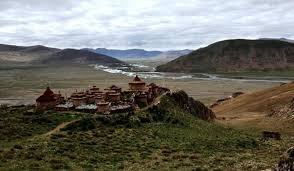

Explore the vibrant Mai Chau market with our ultimate guide. Discover the best local handicrafts, fresh food, and authentic culture. Learn how to navigate this bustling hub and book an unforgettable Mai Chau tour with Golden Trail Travel & DMC.
August 27, 2025

Discover the stunning Mai Chau rice terraces with our ultimate guide. Learn about the best time to visit, and how to explore these beautiful landscapes through cycling, trekking, and photography. Book an unforgettable Mai Chau tour with Golden Trail Travel & DMC.
August 27, 2025

Discover the authentic flavors of Vietnam with a traditional Mai Chau cooking class. Our guide helps you learn about the local ingredients, cooking techniques, and best tour packages. Book your unforgettable culinary journey with Golden Trail Travel & DMC and taste the heart of Mai Chau's culture.
August 27, 2025
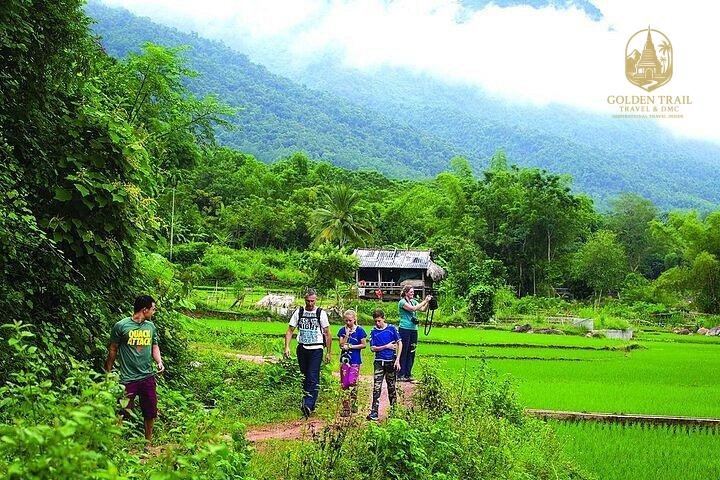
Explore the best Mai Chau tours for an unforgettable Vietnamese escape. From a classic Mai Chau day tour to multi-day trekking adventures, our guide helps you find the perfect trip. Learn how to book an authentic tour with Golden Trail Travel & DMC and create lasting memories in a tranquil valley.
August 27, 2025

Find your perfect Mai Chau accommodation with our comprehensive guide to homestays, guesthouses, and resorts. Learn about the unique experiences each option offers, from authentic cultural immersion to luxurious retreats. Book your unforgettable stay and tour with Golden Trail Travel & DMC.
August 27, 2025

Discover the authentic beauty of Mai Chau with a stay in a traditional Mai Chau homestay. Our guide helps you find the perfect homestay, from tranquil villages to cultural activities. Experience the warmth of local hospitality and book an unforgettable tour with Golden Trail Travel & DMC for a journey of a lifetime.
August 27, 2025
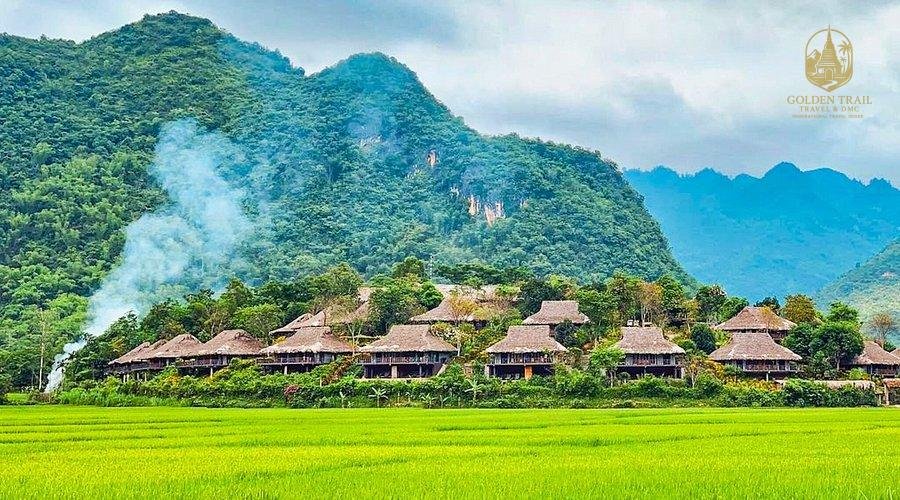
Plan your perfect Mai Chau weekend getaway from Hanoi with our ultimate guide. Discover the best itinerary, from cycling through emerald rice paddies and exploring local villages to enjoying a traditional dinner. Find out how to make the most of your weekend and book an unforgettable Mai Chau tour with Golden Trail Travel & DMC.
August 27, 2025

Planning a Mai Chau day trip from Hanoi? Our ultimate guide helps you discover the perfect itinerary, from cycling through emerald rice paddies and exploring local villages to enjoying a traditional lunch. Find out how to make the most of your day and book an unforgettable Mai Chau tour with Golden Trail Travel & DMC.
August 27, 2025
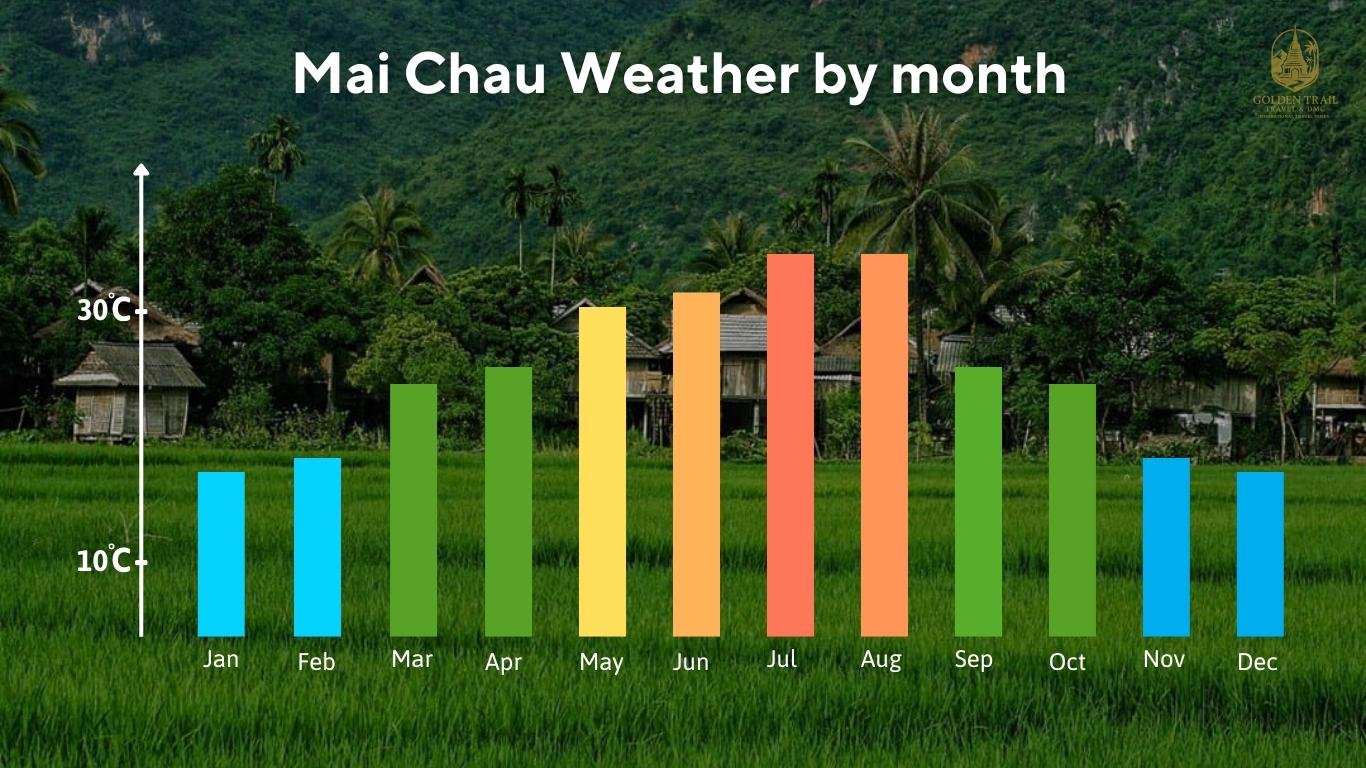
Find the best time to visit Mai Chau with our seasonal guide. Discover how the weather affects your experience, from the golden rice fields of autumn to the vibrant green of spring. Learn what to do, where to go, and how to book an unforgettable tour with Golden Trail Travel & DMC to create your perfect Vietnam holiday.
August 27, 2025

Plan your perfect Mai Chau itinerary with our ultimate guide. Discover the best things to do, from cycling through emerald rice paddies and trekking to remote villages to immersive cultural experiences. Find the perfect tour with Golden Trail Travel & DMC and create unforgettable memories in Vietnam's valley of tranquility.
August 27, 2025
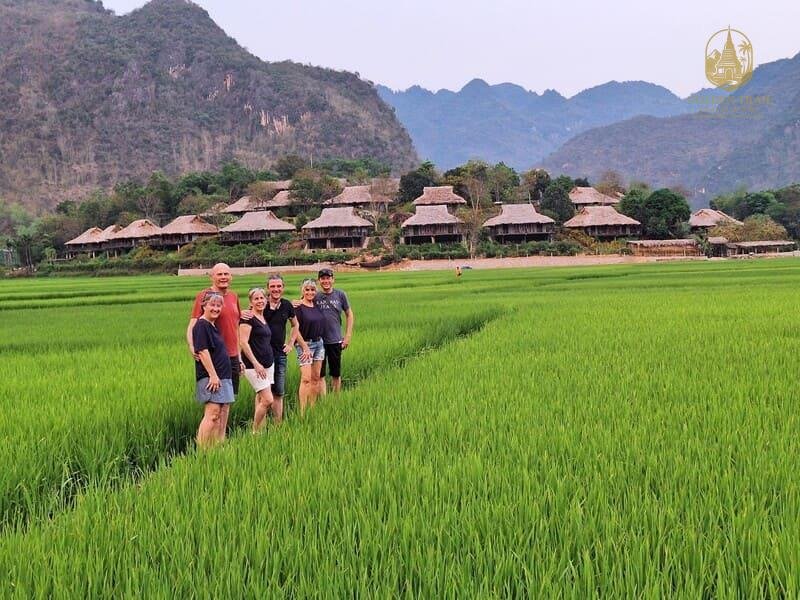
Discover the best things to do in Mai Chau, from cycling through emerald rice paddies and challenging treks to immersive cultural experiences with local communities. This ultimate guide helps you plan your Mai Chau vacation, find the perfect tour with Golden Trail Travel & DMC, and create unforgettable memories in Vietnam's valley of tranquility.
August 27, 2025
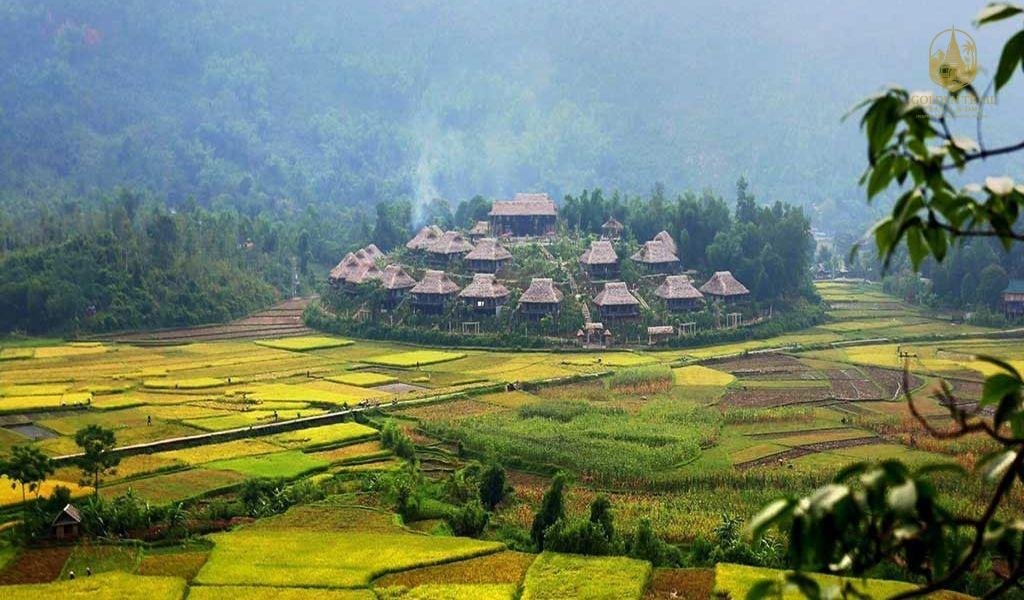
Escape the city and discover the tranquil beauty of Mai Chau with our ultimate travel guide. Explore vibrant rice paddies, charming villages, and immerse yourself in the warm culture of the White Thai ethnic minority. Find the best time to visit, what to do, where to stay, and how to book an unforgettable tour with Golden Trail Travel & DMC.
August 27, 2025

Discover the mystical beauty of Trung Trang Cave in Cat Ba National Park. Explore the ancient history and unique ecosystem of this breathtaking cave. Plan your unforgettable Cat Ba Island tour with Golden Trail Travel & DMC.
August 26, 2025

Discover the mystical beauty of Hang Luon Cave in Halong Bay. Find out what makes this tranquil destination so special, from kayaking through the cave to exploring the serene lagoon. Plan your unforgettable Halong Bay tour with Golden Trail Travel & DMC.
August 26, 2025

Discover Bach Long Vi Island, a remote and untouched paradise in the Gulf of Tonkin. Explore the iconic lighthouse, local fishing village, and pristine beaches. Plan your unforgettable Bach Long Vi Island tour with Golden Trail Travel & DMC.
August 26, 2025

Discover the Trang Kenh Limestone Complex, a historical gem in Hai Phong. Explore the serene Bach Dang River, majestic limestone karsts, and ancient temples. Plan your unforgettable Hai Phong tour with Golden Trail Travel & DMC.
August 26, 2025
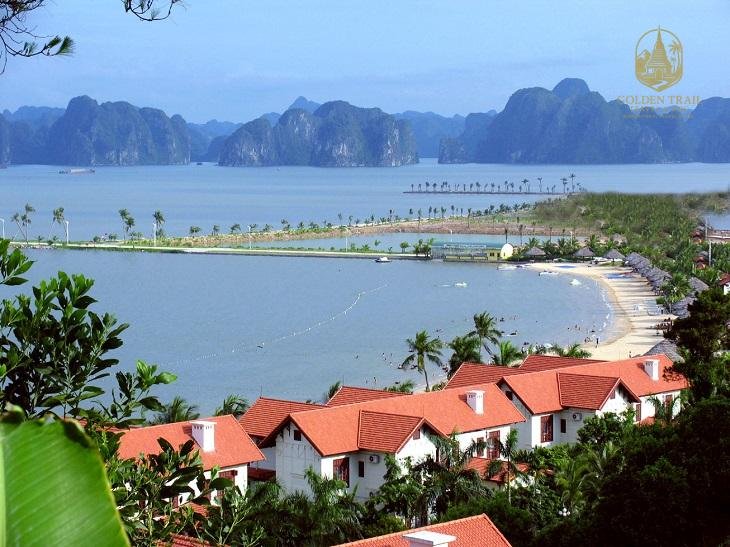
Discover Tuan Chau Island, the luxurious gateway to Halong Bay. Explore the stunning marina, vibrant entertainment, and pristine beaches. Plan your unforgettable Tuan Chau Island tour and Halong Bay adventure with Golden Trail Travel & DMC.
August 26, 2025
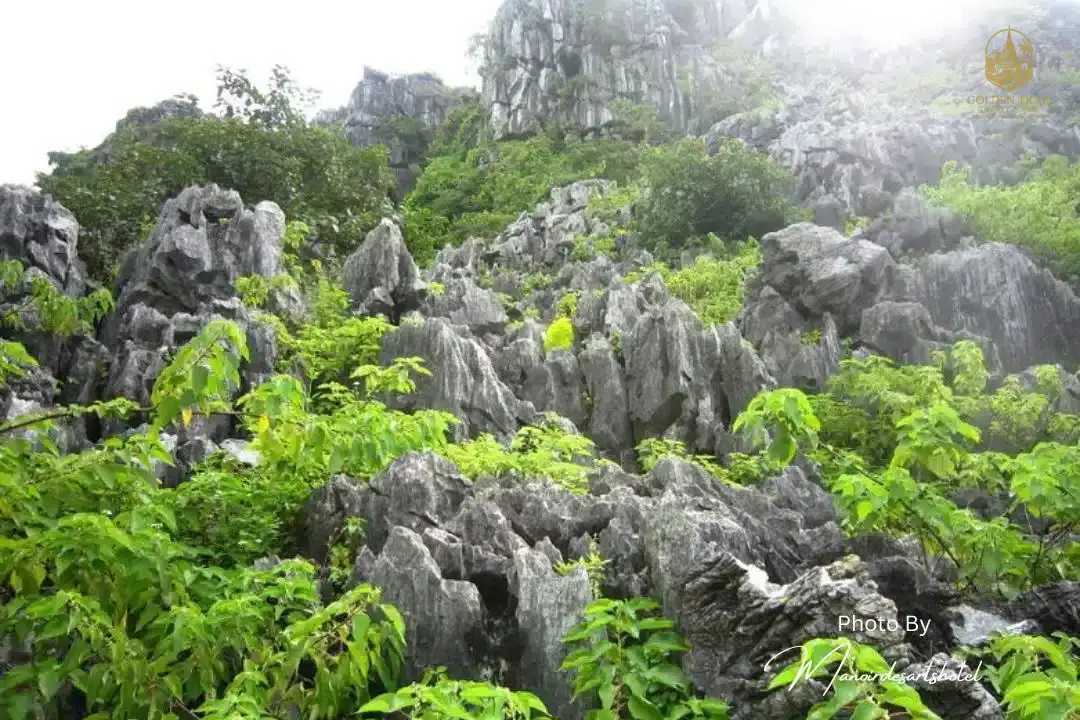
Embark on a rewarding trek up Elephant Mountain on Cat Ba Island. Discover the breathtaking panoramic views and hidden secrets of this majestic peak. Plan your unforgettable Cat Ba adventure with Golden Trail Travel & DMC.
August 26, 2025

Discover Lan Ha Bay, the hidden gem of Vietnam. Find out what makes this tranquil destination so special, from kayaking through secluded lagoons to exploring untouched beaches. Plan your unforgettable Lan Ha Bay tour with Golden Trail Travel & DMC.
August 26, 2025
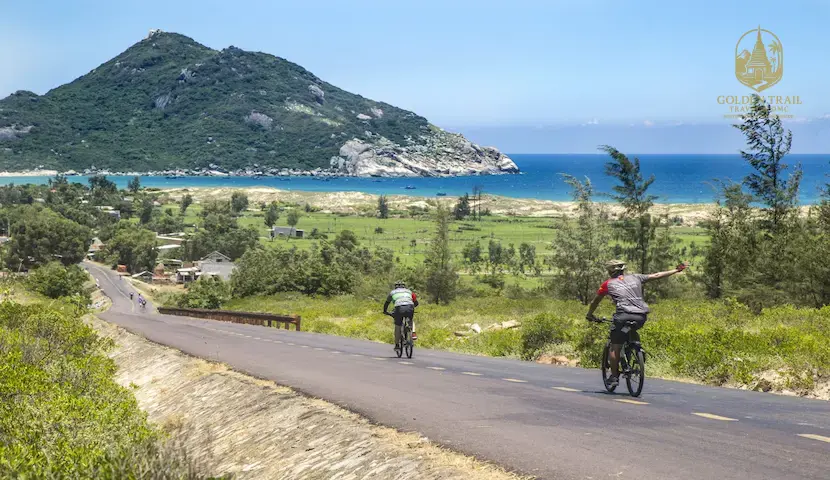
Embark on an epic cycling in Vietnam adventure. Explore the best cycling routes, from challenging mountain passes to tranquil coastal roads. Discover a journey of conquest, culture, and connection. Plan your unforgettable trip with Golden Trail Travel & DMC.
August 25, 2025